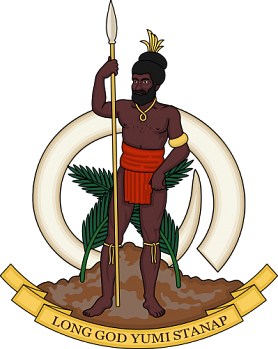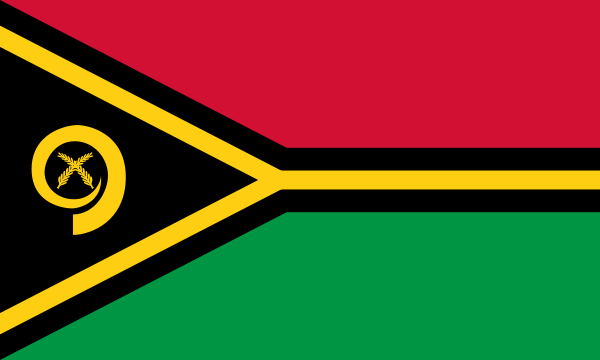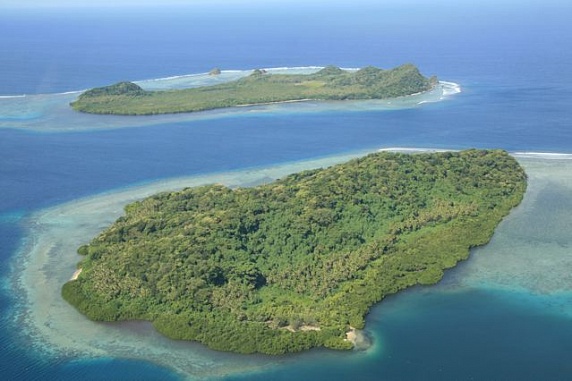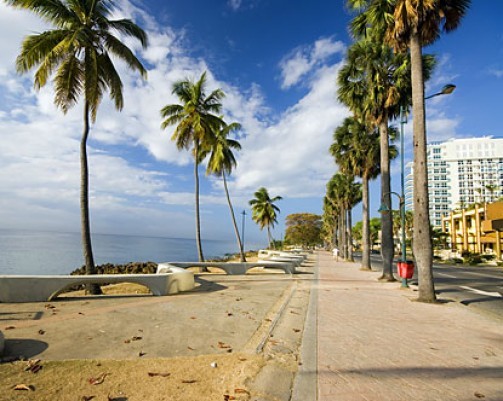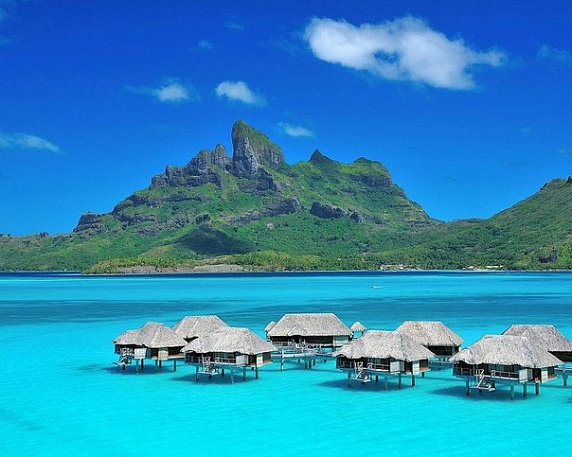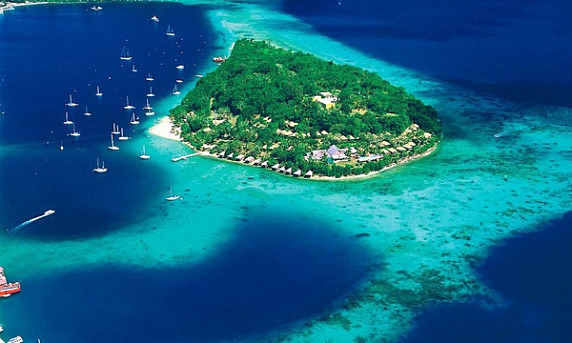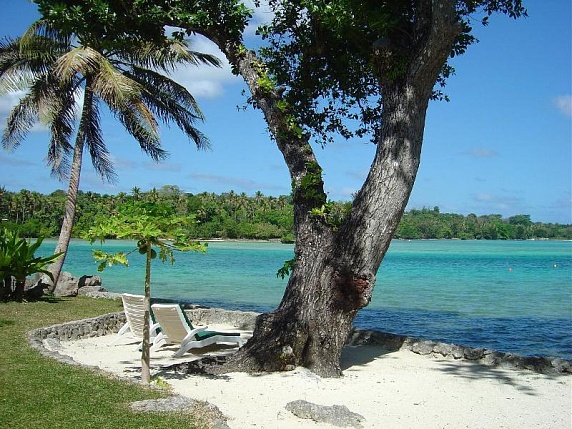 Республика Вануату
Республика Вануату
Foreign Minister Sergey Lavrov’s remarks and responses to questions at a joint news conference following talks with Foreign Affairs and Trade Minister of the Republic of Vanuatu Sato Kilman, Moscow, March 31, 2015
My Vanuatu colleague, Mr Sato Kilman, and I have held talks on bilateral relations and the development of Russia’s ties with the South Pacific island states, which are becoming a major element of the Russian agenda in the Asia-Pacific region.
We expressed condolences on the consequences of Tropical Cyclone Pam. Russia has decided to help the Vanuatu people. Tomorrow morning (Moscow time), two aircraft from the Russian Emergencies Ministry carrying power generators, tents, foodstuffs and basic necessities will land in Port Vila. On a larger scale, we are considering the possibility of providing systematic assistance through international organisations to improve disaster management and emergency response in the South Pacific island states, including Vanuatu.
We also discussed the future of our bilateral political dialogue. We regularly meet on the sidelines of international events, in particular the UN General Assembly. We have agreed to continue this practice.
We are completing the preparation of several documents designed to strengthen the legal framework of our relations, including draft agreements on mutual visa-free travel by our citizens and on cooperation between the Federal Financial Monitoring Service of Russia and the Vanuatu Financial Intelligence Unit.
There are also other cooperation opportunities in agriculture, fishing and fish processing, and infrastructure and tourism that we haven’t pursued yet.
We have accumulated considerable cooperation experience in education. Vanuatu students enrol at Russian universities, and the Vanuatu authorities are also interested in sending their police officers to Russia for advance training and in having their peacekeepers trained here for participation in UN missions. Vanuatu diplomats have had onsite training at the Russian Foreign Ministry’s Diplomatic Academy. We have agreed to carry on this cooperation.
We agree that armed conflicts in the Asia-Pacific region must be prevented and that the numerous conflicts in the region must be settled peacefully. Our friends in Vanuatu have expressed support for the initiative on joint approaches to the security and cooperation architecture of the Asia-Pacific region, which Russia has advanced jointly with China and Brunei Darussalam within the East Asia Summit forum.
We have agreed that our delegations will continue to cooperate at the UN. We are grateful to Vanuatu for supporting Russian initiatives on a number of issues, including confidence-building measures in outer space, international information security and traffic safety. The Republic of Vanuatu is one of the countries that supported the UN resolution on the 70th Anniversary of the end of World War II. We are also grateful to Vanuatu for voting for Russian candidates running for various UN agencies.
Overall, we are satisfied with the results of the talks, which will definitely promote the positive development of Russian-Vanuatu relations.
Question: Do you plan to fly back to Lausanne today for the talks on Iran’s nuclear programme? What do you think about the possible outcome of these talks? What does Russia think about lifting the sanctions from Iran if the issue of its nuclear programme is settled?
Sergey Lavrov: I do plan to return to Lausanne for the final part of the P5+1 ministerial meeting. I believe that the outlook for this round of the talks is not bad, or more precisely, the outlook is good. There is a good chance for reaching an agreement, although you can never be fully confident about anything. This opportunity can become reality, provided none of the negotiating parties ups the stake “at the post,” that is, at the last minute, hoping for additional benefits instead of maintaining a balance of interests. The key priority is not to disrupt this nascent balance. I believe the outlook is very good.
As for sanctions, I believe that the anti-Iranian sanctions should be lifted after we reach an agreement. There are different ways to do this, for example to end the sanctions in full, or first suspend and then formally terminate them. In practice, the idea is that sanctions should end and should stop hindering the development of legitimate trade and economic relations between Iran and its foreign partners. This concerns the UN Security Council restrictions. As for the unilateral sanctions imposed by the United States and European and other states, we don’t consider them legitimate in any situation, be they imposed against Iran or any other country. But this is an issue of cooperation between Iran and these countries.
Question: The growing military operation in Yemen is claiming more lives. The United States is supporting the Arab coalition, and any discussions of resuming an internal Yemeni dialogue have stopped. What should be done to prevent the further escalation of the conflict? Is Russia discussing a ceasefire in Yemen with Egypt? Is there a connection between the events in Yemen and the settlement of Iran’s nuclear issue?
Sergey Lavrov: We are seriously concerned about the developments in Yemen. The situation must be kept under control. We believe that the use of any force must be stopped. The Ansar Allah military group must stop hostilities in southern Yemen, and the coalition forces must stop delivering strikes at Yemen. Both sides – the supporters of Yemeni President Abdrabbuh Mansour Hadi who fled the country and Shia Houthi rebels – must resume negotiations. They maintained contact before the hot phase of the conflict. There is an understanding that the talks should be held on neutral ground, as the Special Adviser to the UN Secretary-General on Yemen has proposed.
We are discussing this issue with all of our partners. Yesterday in Lausanne, I discussed this issue with US Secretary of State John Kerry, German Foreign Minister Frank-Walter Steinmeier, French Foreign Minister Laurent Fabius and the EU High Representative for Foreign Affairs and Security Policy and Vice-President of the European Commission Federica Mogherini. They share our concerns. Regarding the regional and geopolitical aspects of this situation, we must prevent it from becoming a Sunni-Shia confrontation.
We have been talking about the serious danger of an internal Islamic split since the beginning of the Arab Spring. But our arguments were either not heard or disregarded. Those who are deliberately prodding the situation into a hot phase and increased military confrontation between the Sunnis and the Shias will take on huge responsibility. We must prevent this, and we must also prevent attempts to turn this situation into an open conflict between Arabs and Iran. We will do our best to prevent this.
Russia certainly maintains constant contact with Egypt on this (Yemeni), on the Syrian and many other issues. Likewise, we maintain regular contact with Saudi Arabia and other Gulf countries.

